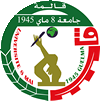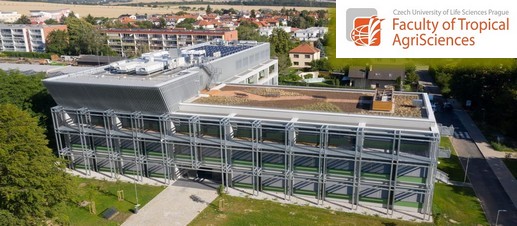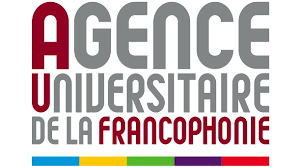مجازر الثامن ماي 1945م القمع والإبادة في ميزان القانون الدولي

مجازر الثامن ماي 1945م القمع والإبادة في ميزان القانون الدولي
ديباجة الملتقى:
شهد العالم خلال الحربين الكونيتين ابادات جماعية و جرائم حرب مروعة لا تمحى من الذاكرة التاريخية فهي جرائم ضد الإنسانية لا توازيها خلال القرن العشرين الا تلك التي ارتكبتها فرنسا الاستعمارية في الجزائر خلال الفترة الممتدة من 1830-1962م ، حين تجاوز القمع و الإبادة الوحشية بكل أنواعها حدود الإنسانية في مظاهرات الثامن ماي 1945 م ، أين ارتكبت القوة العسكرية الفرنسية أكبر قوة في الحلف الأطلسي بكل أجهزتها و امكانياتها أعنف و أبشع المجازر و الإبادة الجماعية المقصودة لألاف الجزائريين الأبرياء و العزل ، في مؤامرة مفضوحة لكسر شوكة الحركة الوطنية و نضال الجزائريين للتخلص من أغلال المستعمر الفرنسي
ان المبالغة في القمع بكل أنواعه و الابادات الجماعية للجزائريين التي استمرت لأشهر كان أمام مراى و مسمع المجتمع الدولي ، الهيئات الأممية و المنظمات الإنسانية فقد سكت أغلبها عن وصمة عار في جبين أصحاب شعار " العدالة ، المساواة ، الحرية " ، كما تغاضى عن تجريمها القانون الدولي بكل مؤسساته بالموازاة مع تجريمه للنازية و ما ارتكبته من مجازر خلال الحرب العالمية الثانية ، حين عرفت محاكمات تاريخية لأقطاب هذا النظام و عقوبات خيالية لمنفذي هذه الجرائم بالإضافة لاستنكار و تنديد من ممثلي الهيئات العالمية على النقيض تماما لما حدث خلال مجازر الثامن ماي 1945 بالجزائر بالرغم من كونها تدخل بدون شك في تصنيف الجرائم الإنسانية ، فقد أخفيت معالم هذه الجريمة وواحدة من المآسي التي سجاها التاريخ و سكت عنها المجتمع الدولي الى يوم هذا .
.
During the two planetary wars, the world saw mass executions and appalling war crimes that are unalterable from historical memory. These were crimes against humanity that were not paralleled during the twentieth century except by those perpetrated by colonial France in Algeria during the 1830-1962 period, when brutal repression and merciless extermination of all kinds went beyond the limits of humanity in the demonstrations of 8 May 1945. During these events, the most powerful French military force in the Atlantic Alliance carried out the bloodiest and most atrocious massacres, as well as the deliberate genocide of thousands of defenseless and innocent Algerians, in a flagrant plot to split the national movement and the Algerian struggle to free themselves from the bonds of the French rule.
The extreme repression of all types and the genocide of Algerians for months had been observed by the international community, the United Nations bodies, and the humanitarian organizations. Most of them remained silent over the condemnation of the authors of the slogan "justice, equality, freedom." International law with all its institutions also condoned its condemnation in parallel with its denunciation of Nazi crimes and massacres committed during the Second World War. At that time, historical trials of the regime's leaders and imaginary punishments for the perpetrators of such crimes were enacted, as well as the denial and condemnation by representatives of international bodies; which is the quite opposite of what happened during the 8 May 1945 massacre in Algeria. Although the carnage undoubtedly fit in the classification of humanitarian crimes, the features of this crime and one of the tragedies that history recorded were hidden and the international community remained silent on it to this day.
Au cours des deux guerres mondiales, le monde a vu des exécutions de masse et des crimes de guerre abominables qui sont inaltérables de la mémoire historique. Il s'agissait de crimes contre l'humanité qui n'étaient pas égales au cours du 20e siècle, sauf à ceux commis par la France coloniale en Algérie pendant la période 1830-1962, lorsque la punition brutale et l'extermination sans pitié de toutes sortes dépassaient les limites de l’humanité au cours des manifestations du 8 mai 1945. Pendant ces événements, la force militaire française la plus puissante de l'Alliance atlantique a perpétré les massacres les plus barbares et les plus atroces, ainsi que le génocide délibéré de milliers d'Algériens sans défense et innocents, dans un complot flagrant pour diviser le mouvement national et la lutte algérienne pour se libérer de l’occupation française.
La communauté internationale, les organismes des Nations Unies et les organisations humanitaires ont observé depuis des mois la répression extrême de toutes sortes et le génocide des Algériens. La plupart d'entre eux ont gardé le silence sur la condamnation des auteurs du slogan "justice, égalité, liberté". Le droit international, avec toutes ses institutions, a également refusé sa sanction parallèlement à sa dénonciation des crimes et massacres nazis commis pendant la Seconde Guerre mondiale. À cette époque, des procès historiques contre les dirigeants du régime et des peines imaginaires pour les auteurs de tels crimes ont été prononcés, ainsi que le déni et la condamnation par des représentants d'organismes internationaux, ce qui est tout à fait le contraire de ce qui s'est passé lors du massacre du 8 mai 1945 en Algérie. Même si le massacre s'inscrit sans aucun doute dans la classification des crimes humanitaires, les caractéristiques de ce crime et de l'une des tragédies enregistrées par l'histoire ont été cachées et la communauté internationale en a gardé le silence jusqu'à nos jours.
- برنامج الملتقى
- إشكالية الملتقى
- أهداف الملتقى
- محاور الملتقى
- اللجنة العلمية للملتقى
- اللجنة التنظيمية للملتقى
- شروط المشاركة و ضوابطها
- مواعيد هامة
- البريد الالكتروني للملتقى
- استمارة المشاركة
- تفاصيل المشاركة في الطبعة الأولى للمسابقة الوطنية لأحسن أطروحة دكتوراه حول الجرائم والإبادة الجماعية في الذاكرة الوطنية: 1830- 1962











